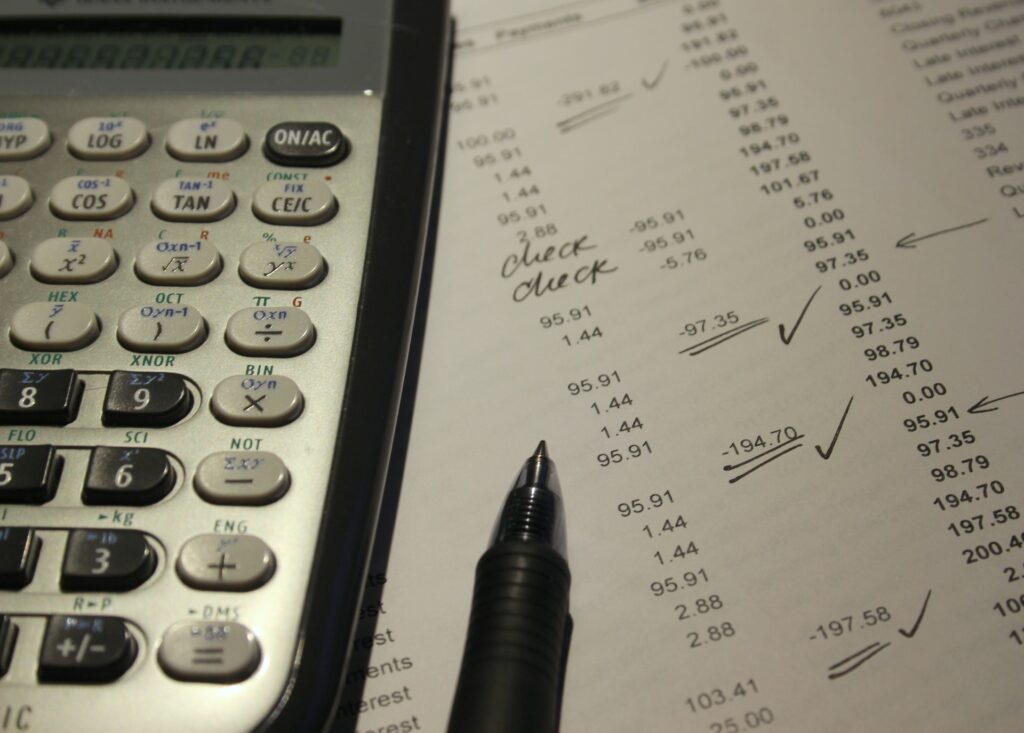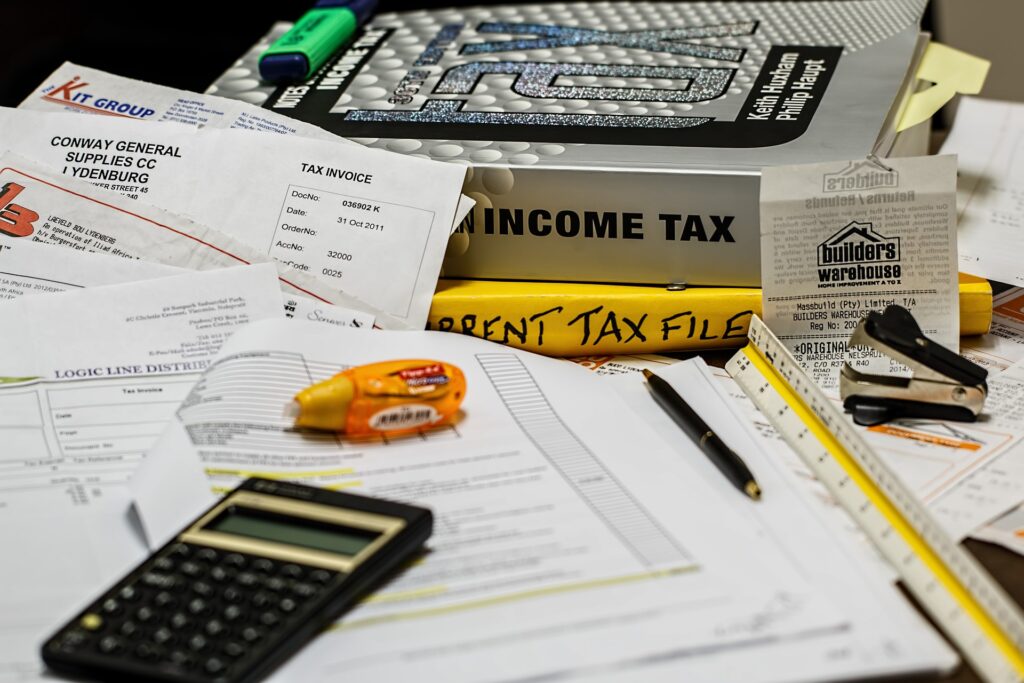This is a collaborative post sharing some useful accounting tips that I find helpful as a self employed working mum. I hope you find them helpful too.
While running your own business is the ideal lifestyle for many of us, it’s not all glamour and expense accounts. There’s a lot that needs to happen behind the scenes to keep your business legal and profitable.
Accounting is one of them. While this isn’t a complete ‘how to’ guide, it will detail some of the areas you need to be familiar with.

Keep Business and Personal Banking Separate
A common mistake among those running small businesses is to mix personal and business finances. As soon as you start in business, open a dedicated business account. Speak to yourfavourite bank about it and see if they offer any incentives to new business owners. You can sometimes get a free banking period or other help such as a business mentor or named advisor.
Learn Your Tax Rates
It can be a tough lesson to learn if you don’t set money aside through the year to pay your taxes and insurances. As a business owner, you’ll have a personal allowance just as you do when employed. This is the amount you’re allowed to earn before you start paying tax, then your tax is calculated on what you earn above that level.
On top, you’re expected to pay National Insurance Contributions, and the exact amount again depends on your earnings. Unlike income tax though, when you’re self-employed you pay some NI regardless of income.
Keep Accounts Up to Date
There are various ways to do this. You could keep your own books, maybe taking a course in accounting if it’s all new to you, or by hiring professional accountancy services.
You could also get a bookkeeper to help with ongoing record keeping if the daily upkeep becomes a chore. Often bookkeepers are fellow sole traders so they understand your challenges and can often advise on the best methods.
Whichever route you take, it’s vitally important that you do it since it’s a legal requirement and you can land in hot water if your records aren’t up to date and accurate.
Claim Your Expenses
There are all kinds of expense allowances you can claim against tax which help to offset some of the costs of doing business and reduce your final tax bill.
Among them are:
• Bank charges on business accounts
• Travel expenses
• Stationery and postage costs
• Office or business premises rental
• Heating and lighting (including a percentage of domestic costs if you run your business from home)
• Advertising and promotion
• Stock costs and delivery charges
There are more, but also some you can’t claim for such as childcare, unrelated training, entertaining clients, or personal costs such as hairdressing or gym memberships.

Understanding Payments on Account
This is something that trips up a few business owners. Not all your tax is necessarily payable when it falls due. Sometimes you’ll need to make advance payments towards expected expenses for the following year. These advance payments are called Payments on Account. They’re usually paid at the end of January and July each year.
How do you know if you need to make payments on account?
You pay over £1,000 on your tax and Class 4 national insurance contributions, or more than 80% of your income is not taxed at source, meaning you pay the tax before you receive the payment such as through PAYE.
It’s supposed to help self-employed people spread the tax cost, but it can end up presenting you with a bill that’s higher than you expected so it’s good to be aware.
Should You Register for VAT?
Unless your turnover is more than £85,000 a year, you don’t need to be VAT registered. There are some advantages though, so it’s up to you whether you do this before you need to.
Being VAT registered can, for instance, make it seem like your business is bigger than it really is since you’ll have a VAT registration number you can put on your website or business headers. You can also claim back VAT you pay on business purchases.
But there are downsides such as more complicated tax returns, so if you do want to register, or if you need to because your turnover puts you over the threshold, this is another excellent reason to learn professional accounting or hire an accountant to keep you on track.
To start with, business accounting can seem a bit daunting. But it’s really not, and plenty of people do it successfully. If it’s new to you, take it step by step and learn as you go along. There’s plenty of help available, and it’s an essential part of business success.